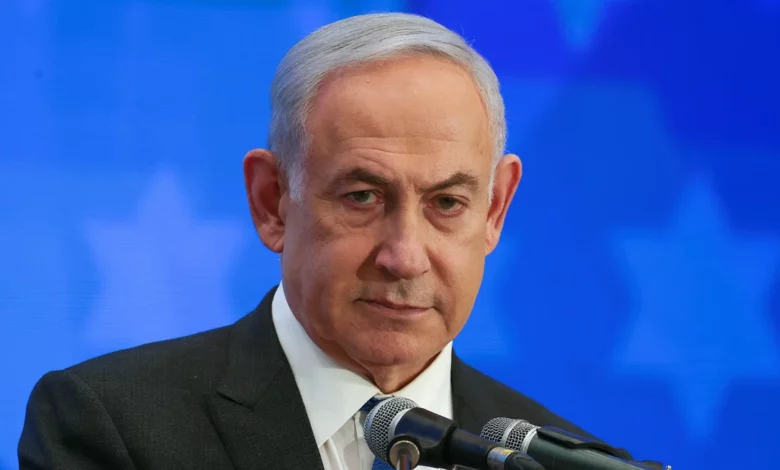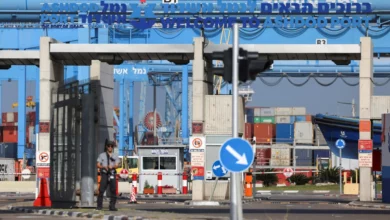
“Distrust of Netanyahu’s ability to rule has deepened and broadened across the public from its already high levels before the war, and we expect large protests demanding his resignation and new elections,” according to the report. “A different, more moderate government is a possibility.”
Netanyahu has faced fierce criticism within Israel for his government’s failure to predict or forestall the October 7 attack, when the terror group Hamas killed 1,200 Israelis and took 240 hostages. Public polling has also suggested that many Israelis question whether Netanyahu’s crushing military offensive in response now into its fifth month, which has leveled Gaza and killed tens of thousands of people, is the best way to recover the hostages.
The intelligence report notes that the Israeli population broadly supports the destruction of Hamas. But its assessment of Netanyahu’s political fortunes nevertheless delivers a stark report on a leader President Joe Biden once claimed to “love.”
It comes amid an increasingly tense — and public — divide between the two leaders over the civilian toll in Gaza.
As reports have mounted of civilian casualties and, increasingly, starvation and disease, the Biden administration has been pushing Israel to allow more aid into the Palestinian enclave. In an interview over the weekend, Biden warned that Netanyahu is “hurting Israel more than helping Israel.”
Netanyahu fired back in a separate interview that if Biden was suggesting “that I’m pursuing private policies against the wish of the majority of Israelis, and that this is hurting the interests of Israel then he’s wrong on both counts.”
The US intelligence report also warns that Israel will struggle to defeat Hamas militarily.
“Israel probably will face lingering armed resistance from HAMAS for years to come, and the military will struggle to neutralize HAMAS’s underground infrastructure, which allows insurgents to hide, regain strength, and surprise Israeli forces,” the report reads.
Experts and military analysts have issued similar assessments, warning that Israel’s aggressive bombing campaign may serve only to inspire future generations of terrorist actors.
Both al-Qaeda and ISIS have been inspired by Hamas and “have directed their supporters to conduct attacks against Israeli and U.S. interests,” the report says.
Threat of a terror attack in US has increased
Within the US, the threat of a terrorist attack “has gone to a whole [other] level” since the October 7 attack, FBI Director Chris Wray testified to the Senate Intelligence Committee on Monday in a hearing surrounding the release of the report.
“Even before October 7th, I would have told this committee that we were at a heightened threat level from a terrorism perspective, in the sense that it’s the first time I’ve seen in a long, long time the threats from homegrown violent extremists, that is jihadist-inspired extremists, domestic violent extremists, foreign terrorist organizations and state sponsored terrorist organizations all being elevated at one time,” Wray said.
The so-called Annual Threat Assessment forms the backbone of the intelligence community’s public-facing messaging each year and offers Congressional leaders the opportunity to publicly question the nation’s top intelligence officials. It offers an around-the-world unclassified snapshot of how the intelligence community views the panoply of national security threats facing the United States.
The normally security-heavy forum strayed into distinctly political grounds on Monday, with Republican lawmakers on the committee repeatedly pressing intelligence leaders on security issues related the US southern border. In the final moments of the hearing, the panel’s top Democrat, Sen. Mark Warner of Virginia, traded veiled accusations with Republican Sen. Jim Risch of Idaho, about the politicization of the panel.
“One of the things I think that we have always taken some pride [in on this committee] is that we can agree without questioning each other’s patriotism, questioning each other’s motives,” Warner said. “And I hope that tenor will be maintained.”
Risch fired back, referring to Warner and another Democratic senator who criticized the Republican line of questioning: “I’ve been on this committee for 15 years and we do a really good job until politics do creep in — and that’s what’s happened here this afternoon with the last two speakers.”
Ukraine warnings
Testifying before the committee, both Director of National Intelligence Avril Haines and CIA Director Bill Burns also issued stark warnings about the status of the war in Ukraine, where Russia is widely assessed to have regained the initiative and Ukraine has been forced to ration ammunition.
Burns said that without additional assistance from the US, Ukraine “is likely to lose ground and probably significant ground in 2024.” A $60 billion aid package to Ukraine has been stalled in the House amid Republican resistance to additional funding.
“I think without supplemental assistance in 2024, you’re going to see more of Avdiivkas, and that it seems to me would be a massive and historic mistake for the United States,” Burns said, referring to a city recently taken by Russia.
With more military assistance, Burns said, the CIA assesses that “Ukraine can hold its own on the front lines” and “regain the offensive initiative” by “the end of 2024, the beginning of 2025.”
According to the intelligence community’s report, Russia is benefitting from both “uncertainties about the future of Western military assistance” and the “deadlock” on the battlefield, which “plays to Russia’s strategic military advantages and is increasingly shifting the momentum in Moscow’s favor.”
The report also offers an intriguing clue about the extent of China’s support to Russia in the conflict, long eyed warily by US officials. Beijing, according to the report, has more than tripled its export of goods with potential military use to Russia since Moscow launched its invasion of Ukraine in 2022.
China has provided “economy and security assistance to Russia’s war in Ukraine through support to Russia’s defense industrial base, including by providing dual-use material and components for weapons,” the report states.
Trade between the two has been increasing since the start of the war — reaching more than $220 billion in 2023, surpassing their record total 2022 volume by 15 percent — and in exchange, Russia is offering China cheaper energy prices and greater access to the Arctic, according to the report.




